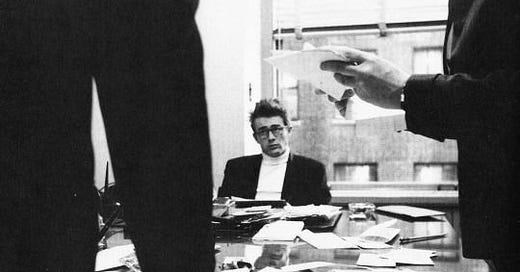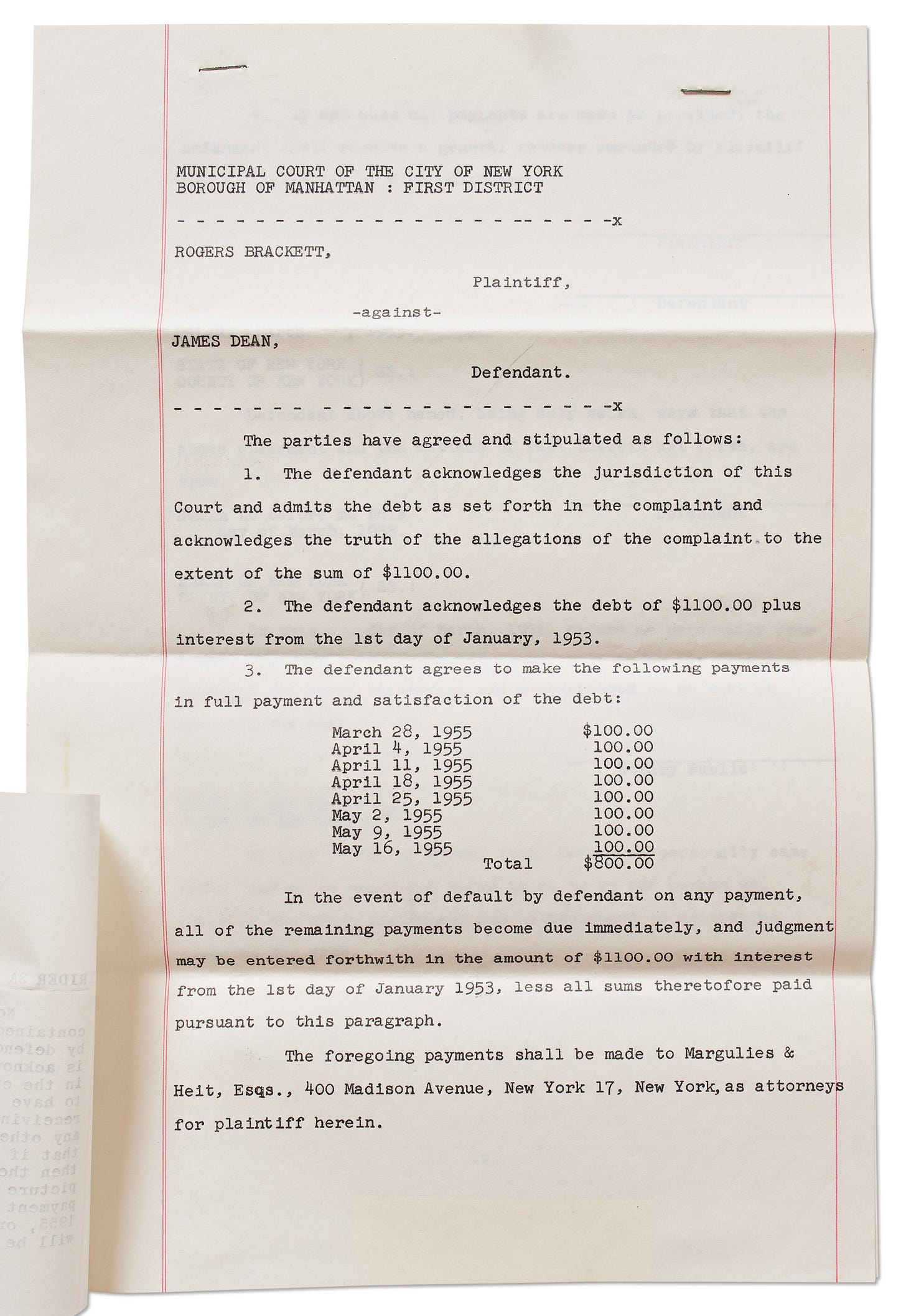James Dean Auction Scatters Historic Papers
I acquired two documents that rewrite history. I wish it hadn't come to that.
The largest ever auction of James Dean’s legal, business, and personal documents from the estate of his agent, Jane Deacy, closed last night (May 25) with mixed results. A few high-profile items sold for high prices, notably Dean’s East of Eden contract, which went for $23,000, his handwritten letters, which sold for $11,000 each, and an autographed photo, which brought $15,000 (prices include the 25% buyer’s premium). Many of the lots, however, sold close to the minimum bid, and a large number, including many items autographed by Dean, did not sell at all. (They are currently for sale in a post-auction clearance at the minimum bid price.)
I imagine there were two reasons for that: First, most of the lots were unimpressive business papers, receipts, and other communications that have historical value but very little display value. The second is that Nate D. Sanders Auctions fumbled the publicity for the auction. Previous major auctions of celebrity memorabilia leveraged the media better with promotions like morning TV show-and-tell segments, a puff piece or two in a glossy elite magazine like Vanity Fair or Esquire, and a lavish catalog that would itself be a collector’s item. There were plenty of opportunities to highlight the historic nature of the collection and the surprising revelations in the documents—if anyone knew what they were looking at. Instead, Sanders put out a minimal press release a few days before the end of the auction, and there was one set of b-roll provided to AP member stations for use in broadcast stories. As best I can tell, only one TV station (KTLA in Los Angeles) took them up on it.
The auction house and the Deacy heirs seemed to expect that Dean’s name would publicize the auction on its own, with no help to guide reporters to what made the collection special, but in our fractured media environment, the chances of that happening spontaneously were low. Most media outlets that covered the story lightly rewrote the press release and did little more. Even I—who have actively monitored news about Dean for the book I am writing—only found out about the auction by accident, when an image from it showed up in a Google Images search.
I have made quite plain my disappointment that this historic material—which, among other things, is a surprisingly complete and almost unprecedented record of the financial, PR, and legal manufacturing of a star—is being scattered to the winds at auction rather than sold to a museum of archive where future researchers could study it. The very least they could have done was to put together a permanent record of the documents in a facsimile catalog so that this rich resource doesn’t disappear forever. I wrote about the historic nature of many of the documents in my previous Substack newsletter.
However, I recognized that my disapproval wouldn’t change the outcome and the auction risked making some important documents vanish from the historical record. Therefore, with mixed emotions, I have acquired the two documents that offered the most important historical revelations in the collection. I purchased the letter in which Dean’s agent discusses his draft status, indirectly confirming that Dean had been drafted and had claimed homosexuality to get out of military service. I also purchased the settlement agreement between Dean and his ex-boyfriend, Rogers Brackett, specifying repayment of the money Brackett spent supporting Dean during their relationship and ending the heretofore unknown lawsuit Brackett filed against Dean in the weeks before East of Eden premiered.
I know that in my hands, these important records won’t disappear from history. But they shouldn’t be in my hands. I’m not sure what I will ultimately do with them. They should be part of the public record in some way.





